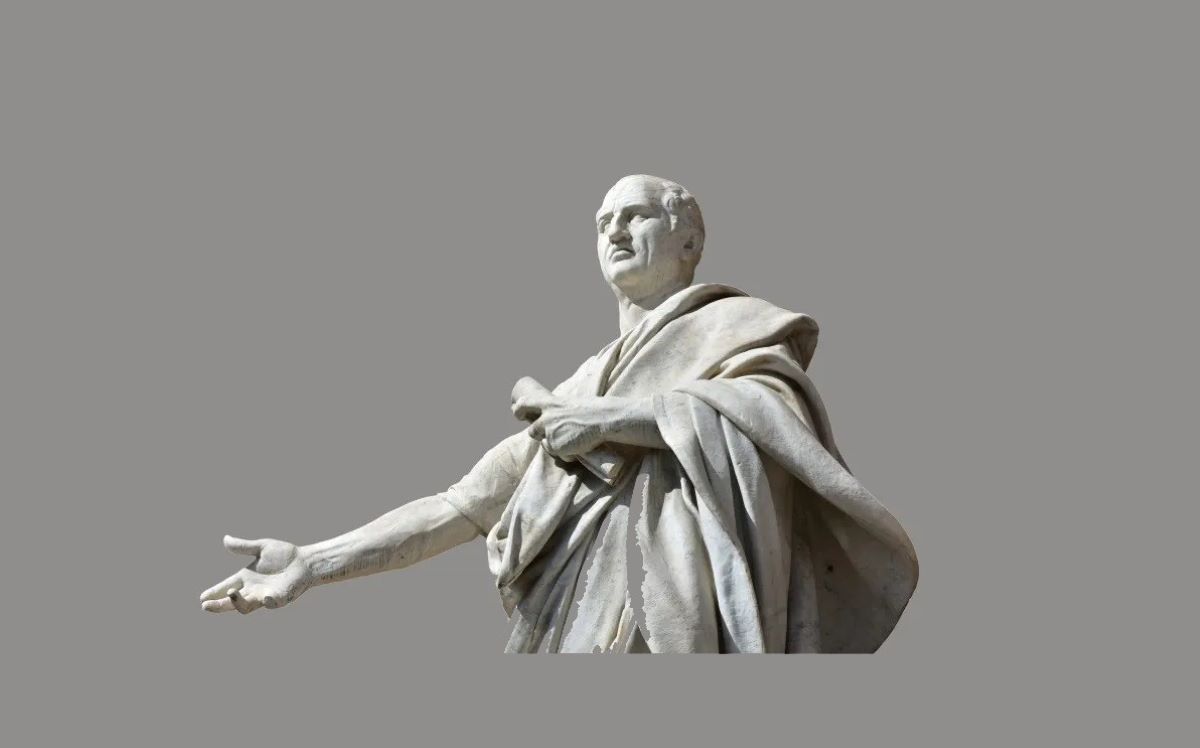
Gaius Suetonius Tranquillus is a name that may not be familiar to everyone, but his contributions to the field of historical documentation are truly remarkable. As an ancient Roman biographer and historian, Suetonius chronicled the lives of many prominent figures in Roman culture and politics. His works provide valuable insights into the personality, achievements, and scandals of emperors such as Julius Caesar and Augustus.
In this article, we will delve into the fascinating world of Gaius Suetonius Tranquillus, uncovering 14 unbelievable facts about his life and contributions. From his meticulous research methods to his daring portrayal of controversial events, we will explore how Suetonius shaped our understanding of ancient Rome. So grab a cup of coffee and prepare to be amazed by these intriguing facts about one of the most influential historians of all time.
Key Takeaways:
- Gaius Suetonius Tranquillus was a Roman historian known for scandalous biographies, shaping our understanding of ancient Rome with vivid storytelling and meticulous research.
- His works continue to inspire and influence the way history is written, studied, and portrayed in popular culture, securing his legacy as a prominent figure in classical studies.
Gaius Suetonius Tranquillus was a Roman historian.
Gaius Suetonius Tranquillus, often referred to as Suetonius, was a renowned Roman historian who lived during the first and second centuries AD. He is best known for his work “The Twelve Caesars,” a series of biographies depicting the lives of the first twelve Roman emperors.
Suetonius served as a secretary to the emperor Hadrian.
During his time as a secretary to Emperor Hadrian, Suetonius had access to the imperial archives, which allowed him to gather firsthand information about the emperors he would later write about in his works.
Suetonius was known for his detailed and scandalous biographies.
Suetonius’s biographies were not only informative but also filled with scandalous details about the personal lives of the emperors. He didn’t shy away from revealing the vices, eccentricities, and controversies surrounding these figures, making his works highly engaging for readers.
Suetonius was a meticulous researcher.
Suetonius dedicated extensive time and effort to collecting information and conducting research for his biographies. He interviewed witnesses, consulted official documents, and even visited the locations relevant to the lives of the emperors, ensuring the accuracy of his accounts.
Suetonius’s works were not initially intended for publication.
Initially, Suetonius wrote his biographies as private memoranda for the emperor’s use, which explains the intimate and candid nature of his writings. It was only later that these works were published and gained popularity among the general public.
Suetonius’s writings cover a wide range of topics.
In addition to his famous biographies of the emperors, Suetonius penned several other works, discussing topics such as Roman customs, notable figures, and even games and spectacles held in ancient Rome.
Suetonius’s works provide valuable insights into Roman society.
Through his detailed descriptions of the emperors’ lives and the customs prevalent during their reigns, Suetonius’s writings offer valuable insights into the social, political, and cultural aspects of Ancient Rome.
Suetonius’s style of writing was influential.
Suetonius’s lively and engaging writing style had a significant impact on later historians and biographers. His approach to blending historical facts with scandalous anecdotes set a precedent for future writers.
Suetonius’s works inspired Shakespeare’s play “Julius Caesar.”
Shakespeare drew inspiration from Suetonius’s biographies while writing his famous tragedy “Julius Caesar.” The vivid characters and dramatic events portrayed in the play reflect the influence of Suetonius’s historical accounts.
Suetonius’s works were nearly lost to history.
During the Middle Ages, Suetonius’s biographies were largely forgotten and remained hidden in monastic libraries. It was not until the Renaissance period that they were rediscovered and recognized for their historical significance.
Suetonius’s works continue to be studied and analyzed today.
Centuries after their initial publication, Suetonius’s biographies still hold relevance for scholars and historians studying the Roman Empire. His writings provide valuable insights into the emperors’ reigns, their personalities, and the social dynamics of the time.
Suetonius shaped the way history is written.
Suetonius’s approach to writing history, focusing on personal anecdotes and scandalous details, has influenced the genre of biography and the way historical figures are portrayed in popular culture.
Suetonius’s writings have been translated into numerous languages.
Due to their historical significance and enduring popularity, Suetonius’s works have been translated into various languages, allowing people around the world to access and appreciate his compelling accounts of ancient Rome.
Suetonius remains a prominent figure in the field of classical studies.
His contributions to Roman history and literature have secured Suetonius’s place as a significant figure in the field of classical studies, ensuring that his name and works are remembered for generations to come.
These 14 unbelievable facts about Gaius Suetonius Tranquillus shed light on his remarkable contributions to Roman history. Through his meticulously researched and scandalous biographies, Suetonius provided valuable insights into the lives of the Roman emperors, shaping our understanding of this influential era. His writings continue to be studied, translated, and celebrated, cementing his legacy as one of the most prominent historians of ancient Rome.
Conclusion
In conclusion, learning about the life and accomplishments of Gaius Suetonius Tranquillus is truly fascinating. From his extensive work as a historian to his close connection with the powerful emperors of ancient Rome, there is no doubt that Suetonius left an indelible mark on history. His meticulous attention to detail and dedication to preserving the stories of the emperors provide invaluable insights into the Roman Empire. As we delve into his works, we continue to uncover new and unbelievable facts that shed light on the lives of these fascinating historical figures. Gaius Suetonius Tranquillus is undoubtedly one of the most influential figures in ancient Roman history, and exploring his life and works is an enriching experience for history enthusiasts and scholars alike.
FAQs
Q: What was Suetonius’ most famous work?
A: Suetonius’ most famous work is “The Twelve Caesars,” a biographical account of the lives of the first twelve Roman emperors.
Q: How accurate are Suetonius’ writings?
A: While Suetonius’ writings provide valuable historical insights, it is important to note that he often included sensational and anecdotal stories. Thus, his works should be viewed with some skepticism and cross-referenced with other historical sources.
Q: What was Suetonius’ relationship with the emperors?
A: Suetonius served as a court official under Emperor Hadrian and later became a trusted advisor to several emperors, including Trajan and Antoninus Pius.
Q: How did Suetonius gather information for his writings?
A: Suetonius gathered information for his writings through a combination of personal observations, interviews with contemporaries, access to imperial archives, and written sources.
Q: Why is Suetonius considered an important historian?
A: Suetonius is considered an important historian because his works provide valuable historical accounts of the Roman emperors, shedding light on their lives, reigns, and personalities. His writings offer unique insights into the political, social, and cultural aspects of ancient Rome.
Was this page helpful?
Our commitment to delivering trustworthy and engaging content is at the heart of what we do. Each fact on our site is contributed by real users like you, bringing a wealth of diverse insights and information. To ensure the highest standards of accuracy and reliability, our dedicated editors meticulously review each submission. This process guarantees that the facts we share are not only fascinating but also credible. Trust in our commitment to quality and authenticity as you explore and learn with us.


